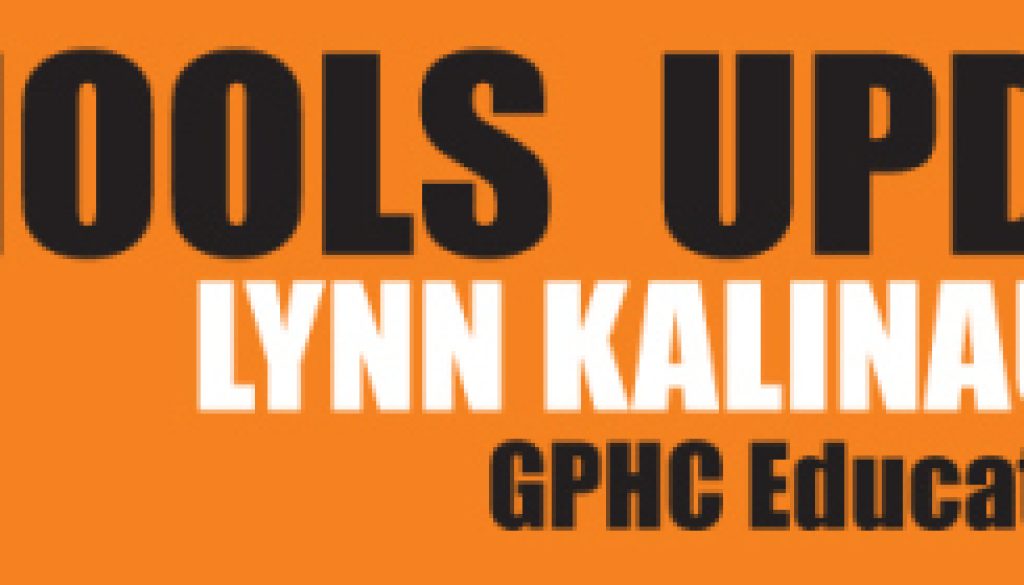With Roots in Park Hill, Summer Scholars Works Year Round
“If only I could have her for the summer, I could get her to where she needs to be.” Those words, spoken two decades ago by then Hallet Elementary teacher Karen Cox, were the catalyst for an academic program that continues to serve hundreds of students every year.
Founded by Cyndi Kahn, who lived in Park Hill for more than 40 years, the program began in 1993 with 20 kindergarten and first grade students, two teachers, two teen interns and one parent.
The program has traditionally focused on providing summer literacy programs and reading intervention efforts to low-income students. At first, students only came in the mornings and for lunch. “But then they didn’t want to go home,” says Kahn. And thus the program expanded to include afternoon activities that are now run by Denver Parks and Recreation.
In a recent interview at Cake Crumbs, Kahn was quick to deflect praise for the program to others who helped make it happen. “I worked with Paul Hamilton, who was the principal at Hallet Elementary. He was passionate about getting his kids up to speed and I just helped him as a community organizer.”
The collaboration of Park Hill principals – from Hallet, Smith and Philips – was instrumental, Kahn notes, when the program expanded to more than 500 students in 1994. Cathy Manchester, who was on the Education Committee for the Greater Park Hill Community Organization, and Dr. Jessica Pierson, who created the program’s elaborate evaluation, were also key to its success, she says.
Kahn also credits Park Hill resident Debbie Milner for putting together teams of coaches to help teachers intensify their own instruction. The focus was – and still is – on small group instruction, an innovative approach at the time.
Following Denver’s infamous 1993 Summer of Violence, Summer Scholars saw Park Hill community members join forces to create a positive educational experience for many of the neighborhood’s youth.
As Summers Scholars celebrates its 20th anniversary, Executive Director Kathleen King explains how the program has grown since its origin: it now offers after-school programs during the academic year, as well as adult literacy programs to support the parents of the students. Though the program focuses on grades kindergarten through five, the bulk of students are children grades one to three.
“Until 3rd grade, children learn how to read,” says King, “from 4th grade on, they have to know how to read to learn.”
Ebony Moore, the program’s site coordinator at Stedman Elementary, agrees that impacting children before they hit 3rd grade is important. Students who have participated in the Stedman summer program also have the opportunity to continue with Summer Scholars in its afternoon program.
Working within the school, Moore knows the teachers and the parents. “Our teachers are our best advocates,” she says, “they help us identify and recruit students to participate in the program.”
At Stedman, the program runs Monday through Friday and offers one hour of literacy and one hour of enrichment after regular school hours. The latter is composed of six-week clubs that focus on progressive skill attainment with options ranging from clay modeling, physical activities, STEM (science, technology, engineering, math) to service learning.
At Stedman, Summer Scholars also hosts monthly family nights and parent focus panels that are open to the entire Stedman community. Moore says the holistic approach of “bringing Summer Scholars to the larger population” makes it stronger.
One of Summer Scholars’ strength is its ability to team up and collaborate with other organizations and groups. For their summer programs, they collaborate with Denver Parks and Recreation that provides programming for the afternoon.
This summer, morning and afternoon programming centered on the “superhero” theme. Children in their 3rd grade program and up all received a copy of Savvy, this year’s pick for Youth One Book, One Denver, about a girl who discovers her own superpowers.
In addition, Summer Scholars piloted two programs. Approached by Philip Garvin, involved Ashley Elementary community member and philanthropist, Summer Scholars ran a Kahn Academy math program using the flipped classroom model.
Students viewed their lessons on individual iPads on which they also did their work, progressing as they increased their skills. Two teachers were on hand to facilitate the learning and intervene when students needed help. In the afternoon, these students participated in a new collaboration between Summer Scholars and the Denver School of the Arts where they engaged in theatre, drama and vocals. The program included a performance piece.
At its origin, Summer Scholars was funded mostly by Park Hill community members, who contributed a total of $4,000. Now, with support and revenues over $2.3 million (2013 financial information) and serving students throughout the Denver metro area, the program is supported by federal and state grants, a wide variety of Colorado foundations, private and corporate donors and fundraisers.
The number of students it can serve depends on its funding status. Summer Scholars has partnered with as many as 18 schools at one time. Currently, they are down from that number but still running strong.
If you would like to find out more about the Summer Scholars, visit their website www.summerscholars.org.
Lynn Kalinauskas is Education Chair of the Greater Park Hill Board of Directors. Send her feedback, story tips or ideas at lkalinauskas@hotmail.com.

